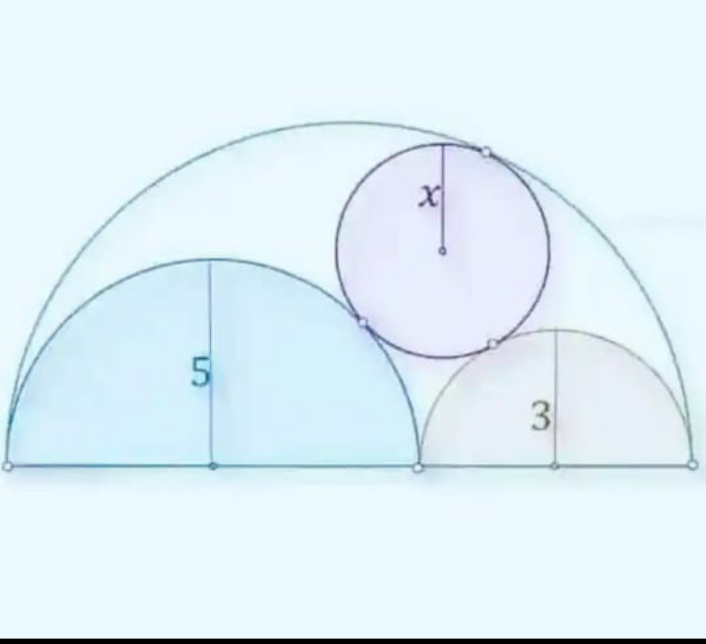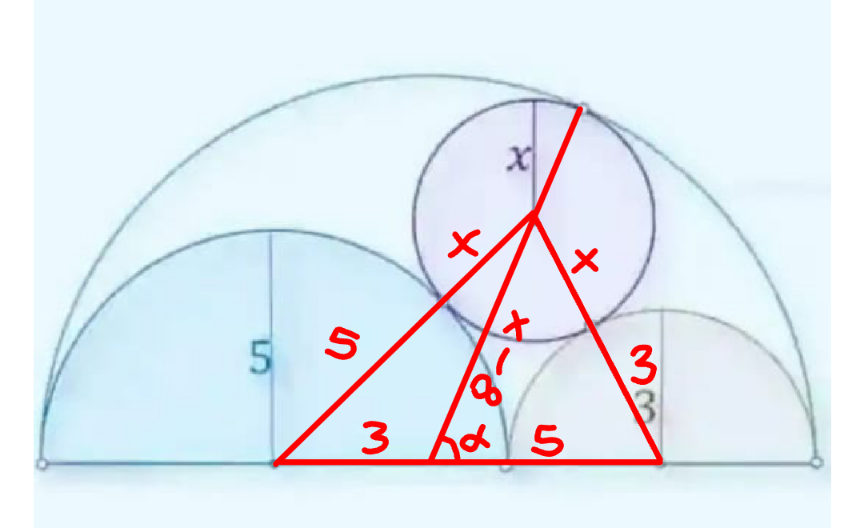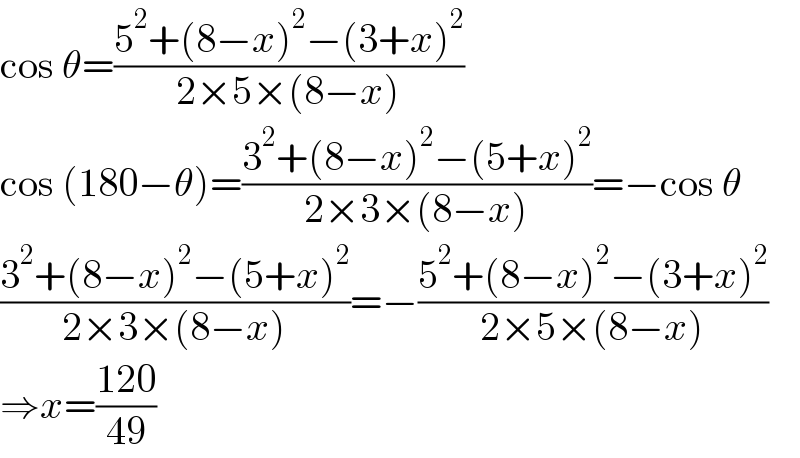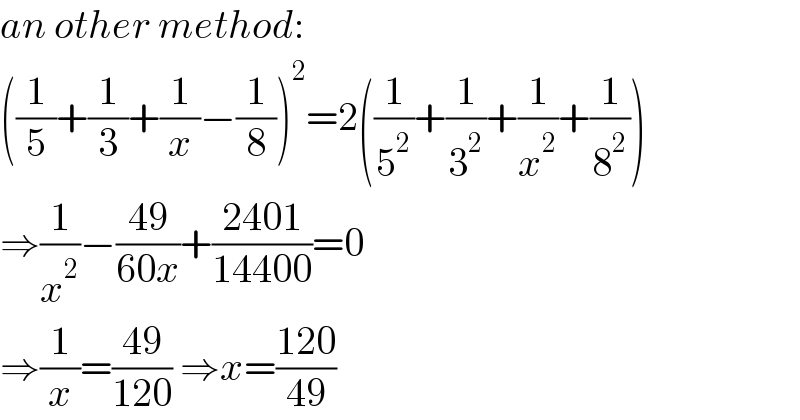
Question Number 210120 by emilagazade last updated on 31/Jul/24

Answered by mr W last updated on 31/Jul/24

Commented by mr W last updated on 31/Jul/24

$$\mathrm{cos}\:\theta=\frac{\mathrm{5}^{\mathrm{2}} +\left(\mathrm{8}−{x}\right)^{\mathrm{2}} −\left(\mathrm{3}+{x}\right)^{\mathrm{2}} }{\mathrm{2}×\mathrm{5}×\left(\mathrm{8}−{x}\right)} \\ $$$$\mathrm{cos}\:\left(\mathrm{180}−\theta\right)=\frac{\mathrm{3}^{\mathrm{2}} +\left(\mathrm{8}−{x}\right)^{\mathrm{2}} −\left(\mathrm{5}+{x}\right)^{\mathrm{2}} }{\mathrm{2}×\mathrm{3}×\left(\mathrm{8}−{x}\right)}=−\mathrm{cos}\:\theta \\ $$$$\frac{\mathrm{3}^{\mathrm{2}} +\left(\mathrm{8}−{x}\right)^{\mathrm{2}} −\left(\mathrm{5}+{x}\right)^{\mathrm{2}} }{\mathrm{2}×\mathrm{3}×\left(\mathrm{8}−{x}\right)}=−\frac{\mathrm{5}^{\mathrm{2}} +\left(\mathrm{8}−{x}\right)^{\mathrm{2}} −\left(\mathrm{3}+{x}\right)^{\mathrm{2}} }{\mathrm{2}×\mathrm{5}×\left(\mathrm{8}−{x}\right)} \\ $$$$\Rightarrow{x}=\frac{\mathrm{120}}{\mathrm{49}} \\ $$
Answered by mr W last updated on 31/Jul/24

$${an}\:{other}\:{method}: \\ $$$$\left(\frac{\mathrm{1}}{\mathrm{5}}+\frac{\mathrm{1}}{\mathrm{3}}+\frac{\mathrm{1}}{{x}}−\frac{\mathrm{1}}{\mathrm{8}}\right)^{\mathrm{2}} =\mathrm{2}\left(\frac{\mathrm{1}}{\mathrm{5}^{\mathrm{2}} }+\frac{\mathrm{1}}{\mathrm{3}^{\mathrm{2}} }+\frac{\mathrm{1}}{{x}^{\mathrm{2}} }+\frac{\mathrm{1}}{\mathrm{8}^{\mathrm{2}} }\right) \\ $$$$\Rightarrow\frac{\mathrm{1}}{{x}^{\mathrm{2}} }−\frac{\mathrm{49}}{\mathrm{60}{x}}+\frac{\mathrm{2401}}{\mathrm{14400}}=\mathrm{0} \\ $$$$\Rightarrow\frac{\mathrm{1}}{{x}}=\frac{\mathrm{49}}{\mathrm{120}}\:\Rightarrow{x}=\frac{\mathrm{120}}{\mathrm{49}} \\ $$
Commented by emilagazade last updated on 31/Jul/24

$${thank}\:{you}\:{a}\:{lot}\:{Sir} \\ $$
